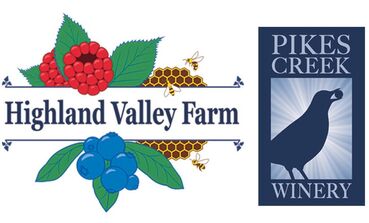The industrialization of American agriculture is now nearly complete. Many rural communities have been severely impacted as a result of this fact. Farmers now represent less than 1% of the national population. 75% of national food production is produced by only 9% of American farmers. Of the 91% of farms categorized by the USDA as "small farms", 60% report sales of less than $10,000 annually at a net income loss of $4,500 per farm. The wealth of American agriculture, which was once broadly distributed among many producers on farms averaging less than 300 acres each, is now concentrated in the hands of a very few, very big, often absentee farm operators. The threat of the CAFO is not just to the quality of a sacred body of water, it also degrades the economic health of rural agricultural communities by displacing smaller farmers, depleting rural populations, and weakening the local institutions and infrastructure that support family farms.
That is not to say that middle sized resident owner-operated family farms can not be viable. Bigger is not necessarily better. Most of the economic efficiency gain realized by increasing economy of scale is captured by the moderate sized family farm--and if resource consumption is the standard over cost of production, it has been demonstrated that industrial farm consumption of resources per unit of production rises as the industrial farm "factory" grows ever larger. But family farms in significant numbers will not be restored to a rural economy of 30,000 residents through any "buy local" program--as much as I will support it. At 245 pounds of dairy product, the current national per capita consumption of milk, three modest family farms milking 100 cows each could supply the two-county annual need of 7,350,000#. My point is that farms need to be able to "export" to more densely populated urban communities if our farms and rural communities are to be viable and our cities are to survive.
We have the available land and natural resources to produce--to bring wealth from "outside" into our local economy. Agriculture was once the economic backbone of the Bayfield County economy. Over time it could become a major contributor again. What will be required first and foremost will be people with the desire and the will to stay put--to commit to this place. Farming is a long term development proposition and a life-long vocation. To save what production we already have, we need to enable beginning farmers to become economically viable, and enable retiring farmers to transition their operations to the next generation. Beginning at home, we need to stop denigrating this place where we live by convincing our children that their future opportunities for vocation and fulfillment will be better found elsewhere. We need to return or strengthen Agriculture programing in our public schools and technical college to include agricultural entrepreneurialism. The existing family farms that have survived the assault of industrialization, and more recent farms in our community that have established and proven themselves, provide the best models for sustainability. We need to support cooperative efforts as the best means for growing farms. Our concept of "local food production for a local population" must be stretched to allow local farmers to seek additional markets beyond our county lines. As much as farming should be a lifestyle, it must also be a business if farmers, their families, and their rural communities are to survive and prosper.


 RSS Feed
RSS Feed
